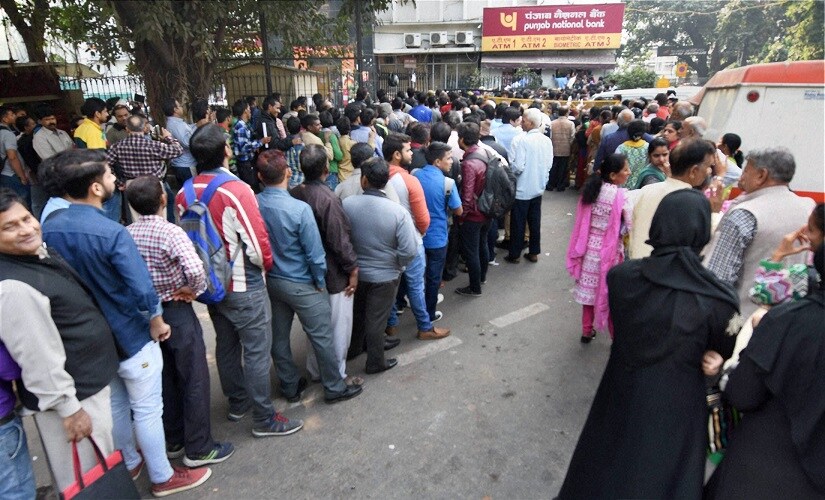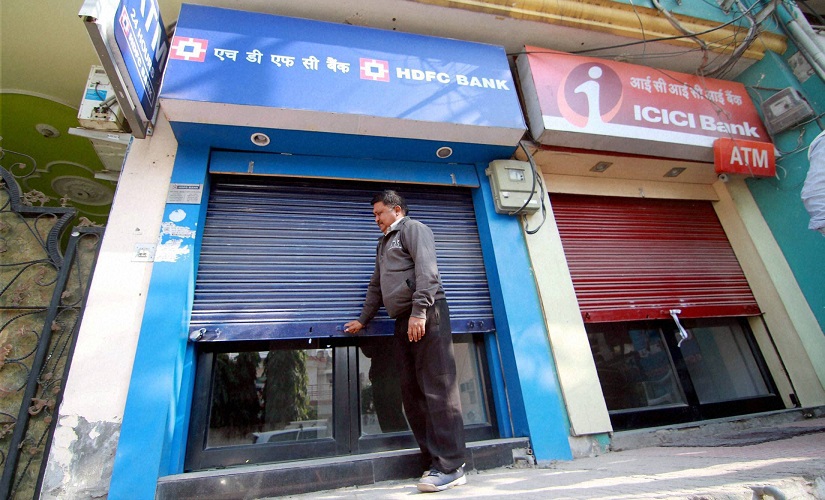On the evening of 8 November, when Prime Minister Narendra Modi in his address to the nation, announced the demonetisation of Rs 500, and Rs 1,000 notes, it gave a sense of hope that we finally have a government which was taking decisive action against black money and corruption. A slew of steps were announced as well to ease the transition. The prime minister presented a passionate case:
“To break the grip of corruption and black money, we have decided that the five hundred rupee and thousand rupee currency notes presently in use will no longer be legal tender from midnight tonight, that is 8th November 2016…This step will strengthen the hands of the common man in the fight against corruption, black money and fake currency."
Within minutes, the Modi government’s sudden but big move was extolled, debated, dissected and analysed, however, the good feeling soon ebbed away leading to panic and anxiety: How to get rid of the old defunct Rs 500 and Rs 1,000 notes? Since 8 November, the lines in front of banks and ATMs have only grown and so has the frustration and helplessness of citizens. While representatives of the government have repeatedly assured that the situation will normalise soon, people are not buying it anymore. Despite the prime minister various members of his Cabinet appealing to the country to focus on the big picture, life for the majority of Indians has been reduced to an endless queue. [caption id=“attachment_3112156” align=“alignnone” width=“825”] People stand in long queues outside a bank. PTI[/caption] Gauging the mood of the nation, Modi made an emotional appeal in Goa: “Dear countrymen, please give me these 50 days. I am not demanding anything else. If you face any difficulty after that, if you find me dishonest in my efforts, you can punish me in whatever way you would wish to at any crossroad of the country.” Finance Minister Arun Jaitley on Tuesday said that move to demonetise the high-value notes was “very well-planned”, and added that the rush in bank branches is “significantly” coming down and 22,000 ATMs are getting recalibrated daily in order to dispense Rs 100, and new Rs 500 and 2,000 notes. But the ground reality is completely different. People are camping overnight outside ATMs and banks. The urban salaried class of India might have moved to a cashless way of life. Thanks to the cab aggregators, payment gateways and mobile apps, surviving without hard cash may not seem to be so daunting. With the persisting cash crunch, it is the good old jugaad that has come to the rescue of many Indians. Mobile recharges in exchange of vegetables, online transfers instead of cash payments are the new norm. But what about thousands others who have never heard of payment gateways and net banking? India is far away from being a cashless society, forget online banking, there are many who don’t have debit cards or even banks accounts. There are senior citizens, who prefer to keep emergency funds at home, instead of making multiple trips to the ATM. Did the government take the plight of these people into account before plunging into this scheme? [caption id=“attachment_3112234” align=“alignnone” width=“825”]
 Representational image. PTI[/caption] You will only have to stand in a queue outside an ATM to realise the extent of Indian resilience, or may be it is desperation. People come stocked with food and juice as if its a prized picnic spot, there is free exchange of information, friends and family drop by or take turns to stand in queue, flared tempers turn into friendly banter — the Indian masses’ stoic acceptance of their lot is worth admiring. But it is not happy tales everywhere. There are reports of people collapsing while standing in queues, some have resulted in deaths. Office-goers have been forced to skip work to get hold of their hard-earned cash. The situation in small towns and villages is worse.
Representational image. PTI[/caption] You will only have to stand in a queue outside an ATM to realise the extent of Indian resilience, or may be it is desperation. People come stocked with food and juice as if its a prized picnic spot, there is free exchange of information, friends and family drop by or take turns to stand in queue, flared tempers turn into friendly banter — the Indian masses’ stoic acceptance of their lot is worth admiring. But it is not happy tales everywhere. There are reports of people collapsing while standing in queues, some have resulted in deaths. Office-goers have been forced to skip work to get hold of their hard-earned cash. The situation in small towns and villages is worse.
It is the sowing season; no diesel in our tractor; have been standing in queue outside banks for 3 days in row but couldn't withdraw: Farmer pic.twitter.com/8fMlRwwTkO
— ANI UP/Uttarakhand (@ANINewsUP) November 17, 2016
Finding it difficult to buy seeds, cut crops; whole day goes to waste if we need cash: Farmer in Siliguri #DeMonetisation pic.twitter.com/tMBG7qDjV1
— ANI (@ANI) November 17, 2016
TS Sudhir writes for _Firstpost_ : Srinivas, a farmer in Siddipet town of Telangana, says “This is Rs 10,000, all in denominations of 2,000. This is of no use. I can neither buy a cup of tea for myself or a meal for Rs 5 nor buy a bus ticket.” While Aijaz Nazir interviewed Ghulam Ali from Anantnag in Kashmir, who said, “I need money to book a ticket for my daughter who studies outside Kashmir. Her exams are approaching and I am worried whether she will be able to attend those.” Ali used to book her tickets from home when internet services were functional in the Kashmir Valley. Adding to the cash crisis, are the constant change in policies that many are finding difficult to track. Economic Affairs Secretary Shaktikanta Das’ Thursday’s announcement that families that have an upcoming wedding, one member of the household can withdraw up to Rs 2,50,000 at one time came as good news, lowering the maximum sum that could be exchanged from Rs 4,500 to Rs 2,000 drew a lot of criticism. Harry Stevens and Suchetana Ray wrote in the Hindustan Times, that to print new Rs 500 and Rs 2,000 notes and replace the Rs 14 trillion taken out of circulation, will take around six months. “Printing 17.5 billion notes at a rate of three billion notes per month will take almost six months,” says the report. The problems don’t end there. The notes have to distributed across the country and the ATMs have to recaliberated. It’s day nine of demonetisation. Parliament is in uproar over the issue, protests are breaking out, politicians are fighting it out to earn some brownie points, but the line outside ATMs and banks are not moving. The situation has not improved since day one. Banks are overburdened, ATMs are running dry, government is busy is facing Opposition onslaught, while the masses wait in queues to get what is rightfully theirs. And things show little sign of improving. (With inputs from agencies)


)

)
)
)
)
)
)
)
)



